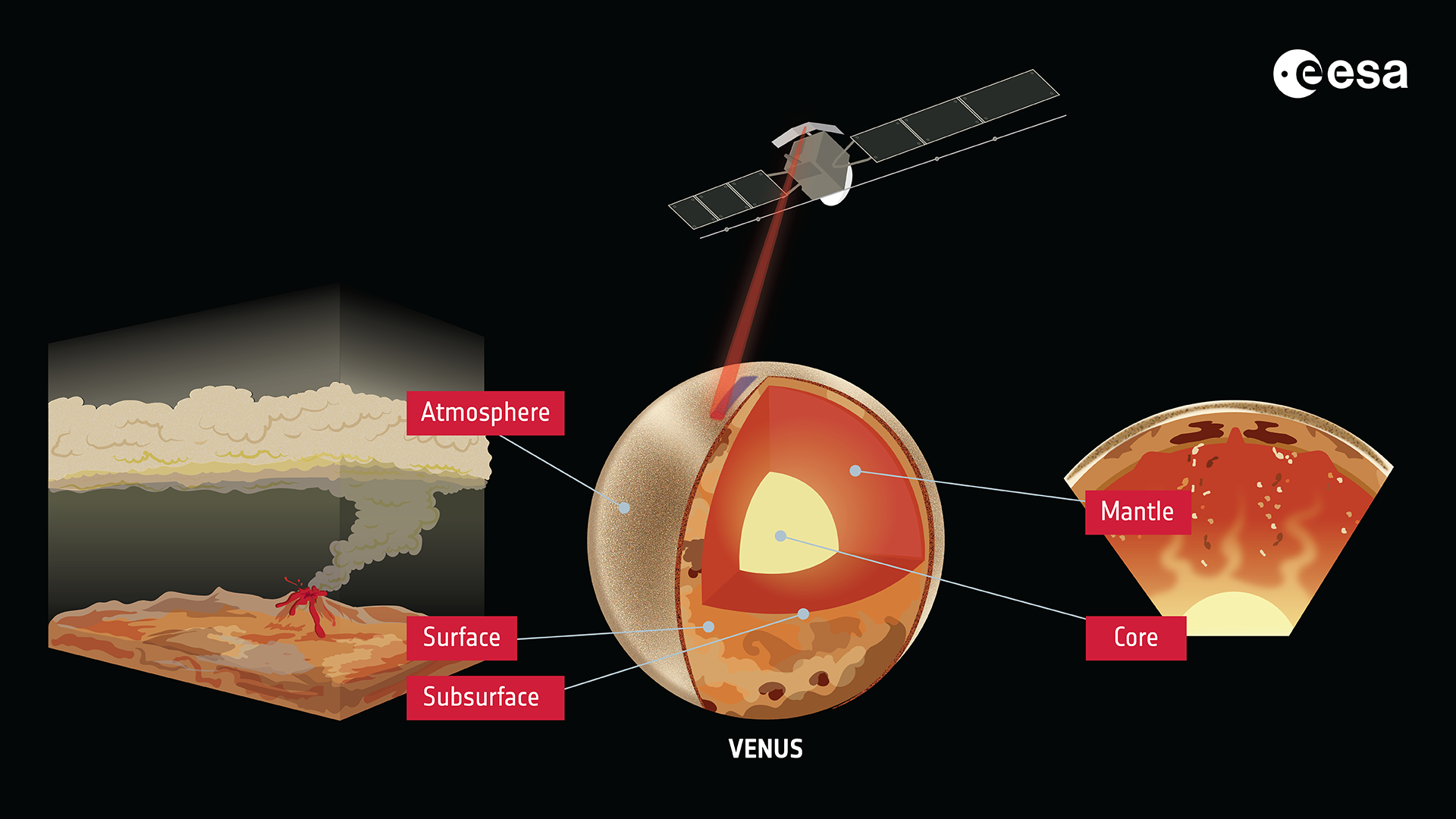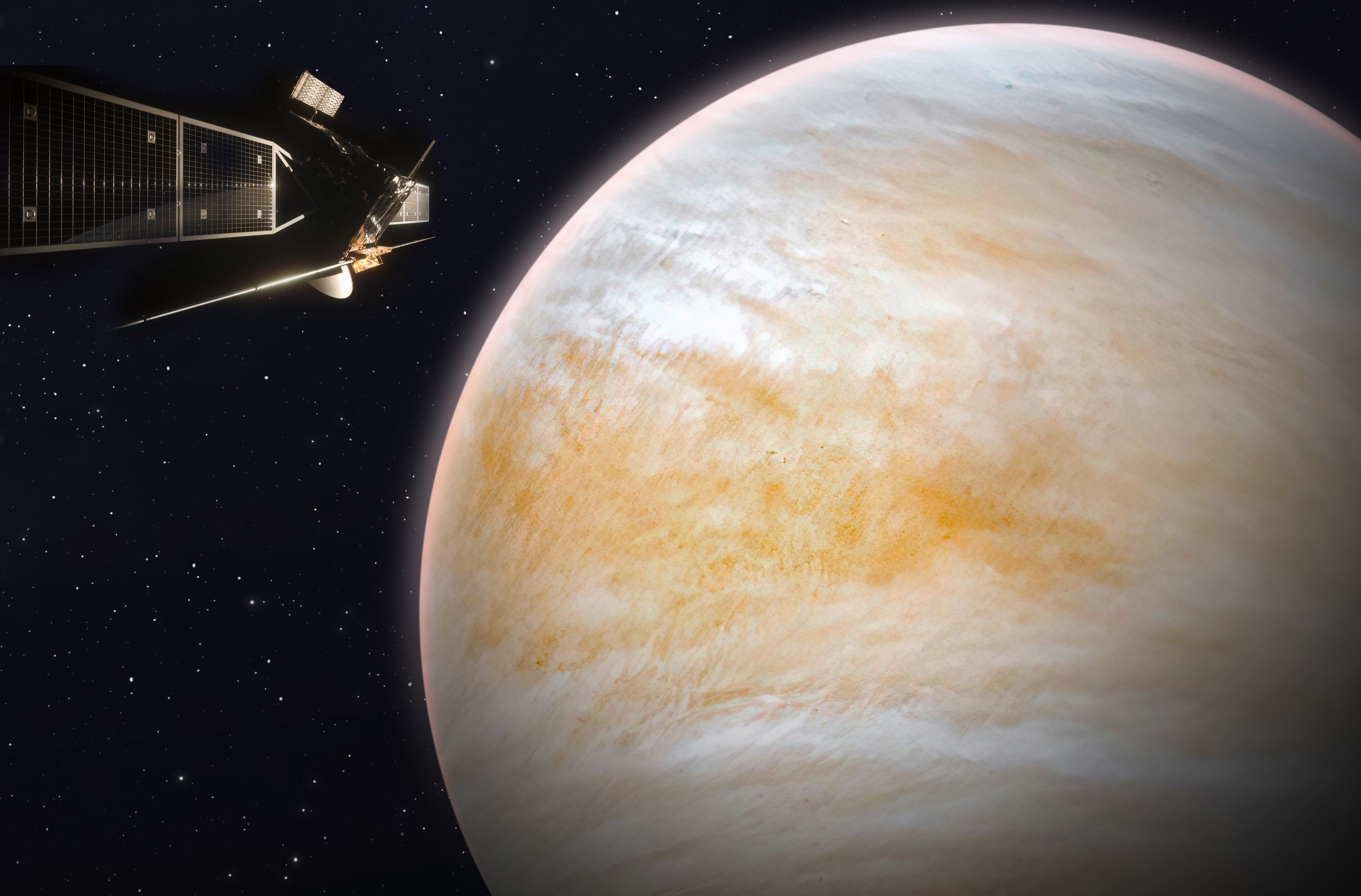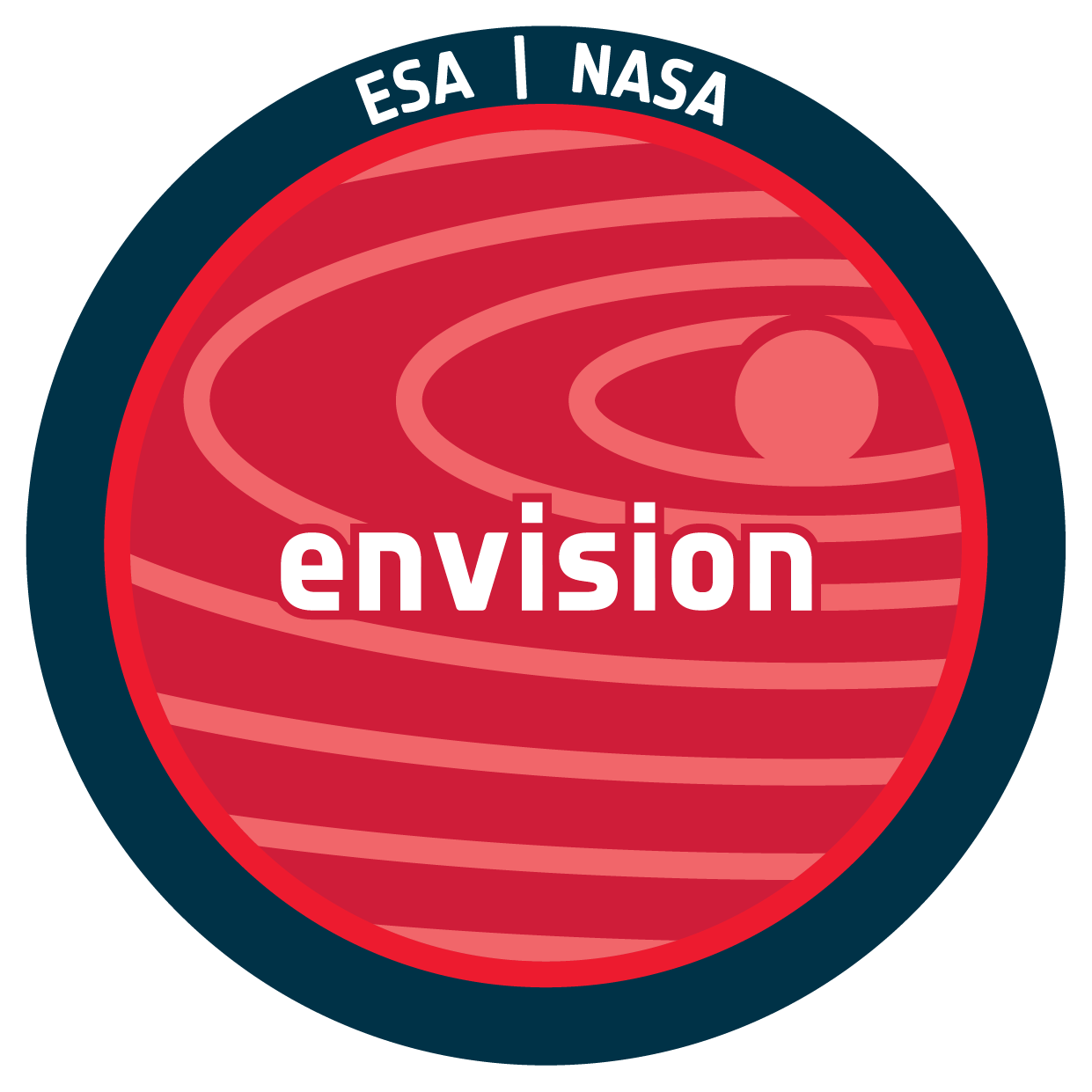ESA'S ENVISION MISSION SCIENCE AND TECHNICAL PAGES - EnVision
Welcome to ESA's EnVision science and technical pages
EnVision will be ESA’s next Venus orbiter, providing a holistic view of the planet from its inner core to upper atmosphere to determine how and why Venus and Earth evolved so differently.

EnVision - observing the coupled Venus system.
EnVision was selected as ESA’s 5th Medium-class mission in the Agency’s Cosmic Vision plan, targeting a launch in 2031. The mission was adopted in January 2024, and ESA awarded Thales Alenia Space (TAS) the contract to build the Envision spacecraft on January 28 2025.
The objective of EnVision is to use the observations of the different parts of the Venus system to studying the planet's history, activity and climate. This will be achieved by its five instruments, provided by European and US research institutes and space agencies. EnVision aims to characterize Venus’ core and mantle structure, to detect signs of past and present geologic processes and their coupling with the atmosphere, and to look for evidence of past liquid water. This emphasize the need to study the atmosphere, surface, and interior of Venus as a system.
ESA led mission in partnership with NASA
EnVision is an ESA led mission in partnership with NASA, with NASA providing the Synthetic Aperture Radar (VenSAR), support to the Aerobraking phase, and Deep Space Network support for critical mission phases.

An artists impression of Envision at Venus. Credits: ESA/Paris Observatory/VR2Planets & NASA/JPL-Caltech.
The ESA Project Team is located in ESA's centre ESTEC (Noordwijk, The Netherlands). The launch and operations will be supported by the Mission Operations Centre (MOC) at ESA's centre ESOC (Darmstadt, Germany) and the science operations and data archiving by the Science Operations Centre (SOC) and Planetary Science Archive (PSA) at ESA's centre ESAC (Madrid, Spain). The instrument operations and operational interfaces to the SOC is distributed across the Instrument Teams.
EnVision VenSAR is part of NASA's Discovery Program. NASA's Marshall Space Flight Centre in Huntsville, Alabama, manages the Discovery Program for NASA's Science Mission Directorate in Washington D.C. The Jet Propultion Laboratory (JPL), a division of Caltech in Pasadena, California, will provide the VenSAR radar, and will have responsibility over the overall instrument management and provision.
Contributions by ESA member states
ASI, DLR, BelSPO, and CNES lead the procurements of the SRS, VenSpec-M, VenSpec-H and VenSpec-U instruments and the Radio Science Experiment (RSE), respectively.
Further information from ESA on EnVision is available here.

- Removed a total of (2) style text-align:center;
- Removed a total of (5) style text-align:justify;
- Removed a total of (1) style margin:0;








































 Sign in
Sign in
 Science & Technology
Science & Technology